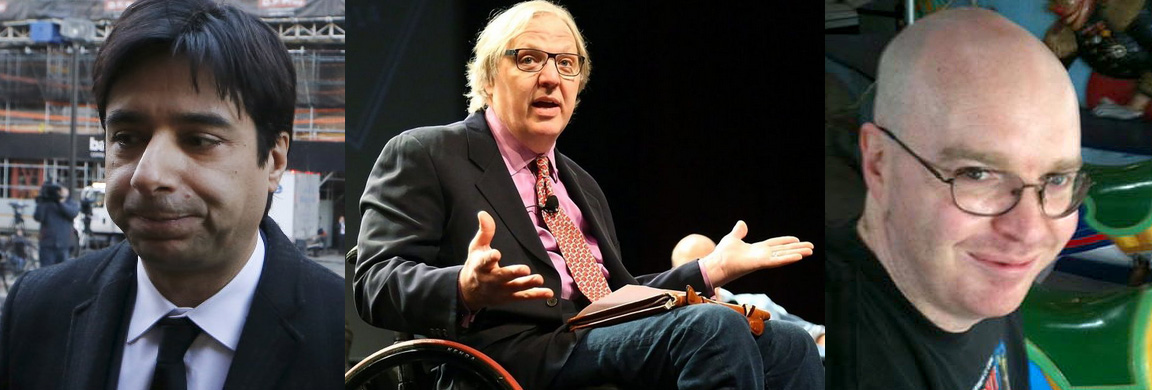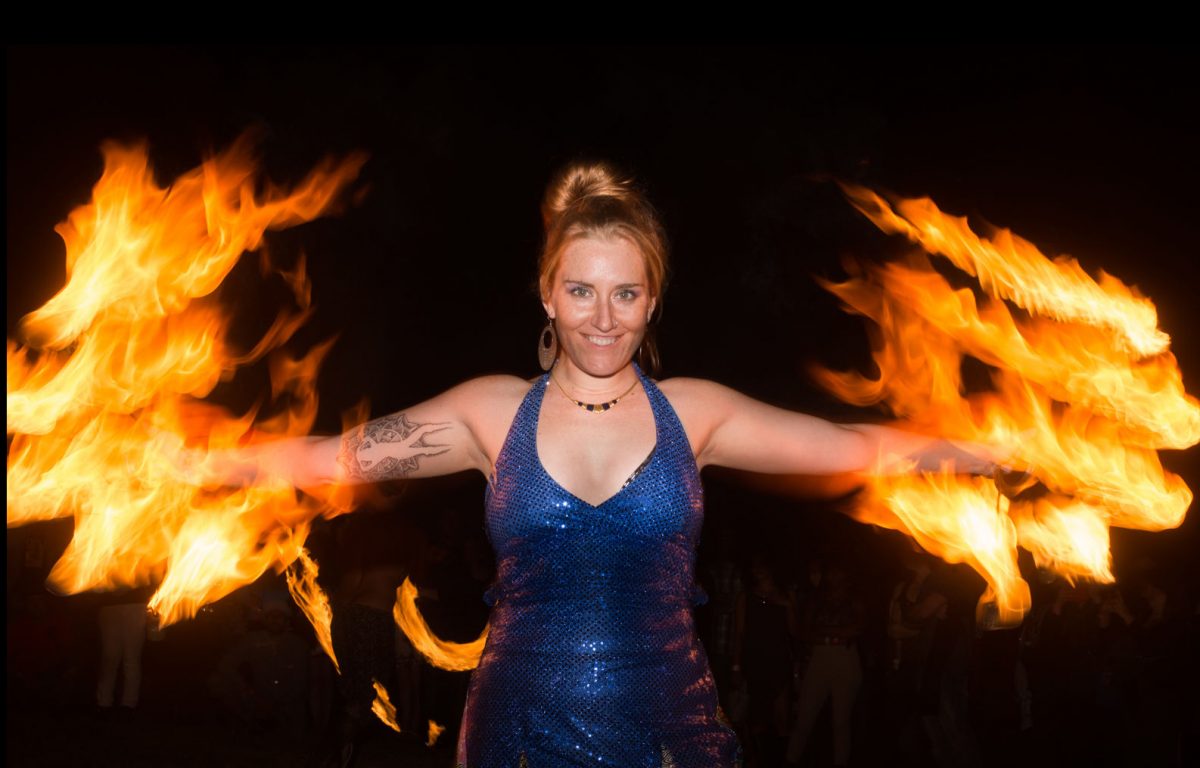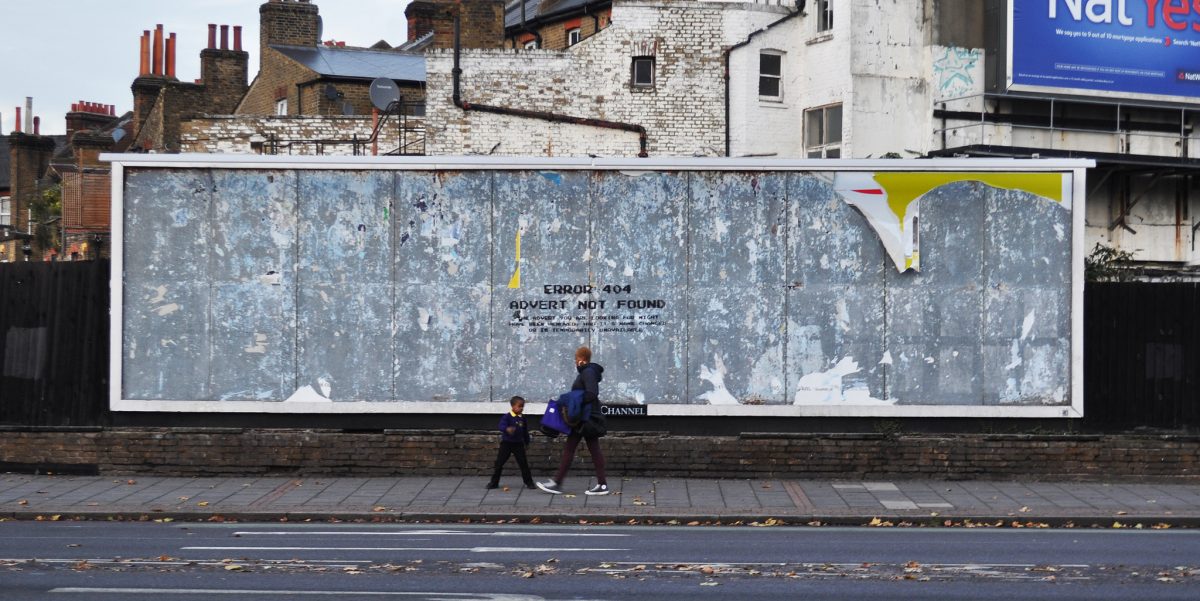In the last week, two magazines have opened their tony doors to two former radio show hosts who abused their power and harmed women. The first piece was published in Harper’s. It was written by John Hockenberry, the former host of The Takeaway who was fired after facing numerous sexual harassment allegations. Hockenberry had clearly learned nothing from his experience. He painted his behavior as “something once called romance” and even had the temerity to quote from Lord Byron.
Days later, The New York Review of Books published “Reflections from a Hashtag,” a 3,500 word essay from former Canadian radio icon Jian Ghomeshi. Ghomeshi, whose career ended after he faced sexual assault allegations from more than twenty women, was similarly without contrition or rigorous self-examination. He failed to mention the apology he was ordered to give to Kathryn Borel. And there was ancillary cluelessness from the top brass people who had commissioned the essay. In an astonishing interview with Slate‘s Isaac Chotiner, NYRB editor Ian Buruma cheapened Ghomeshi’s baneful manipulation of women by referring to sexual behavior as a “many-faceted business.” What Buruma and Harper’s head John R. MacArthur failed to see, both in authorizing and publishing these essays, was not only the extremely necessary climate shift ushered in by the #metoo movement, a reversal of patriarchal abuse that has been too long in arriving, but the manner in which these abusers retreated to self-pity and defensiveness. Both Hockenberry and Ghomeshi expressed zero concern for the women they abused. And if one is to reckon with the truth, then it means owning up to the totality of how one has harmed.
I have some first-hand experience with what Hockenberry and Ghomeshi are going through. In 2014, I was someone who operated in the literary world and I suffered a mental collapse. I wrote a terrible essay streaked with misogyny that I did not recognize, threatened to reveal an embarrassing personal detail about a woman on Twitter, and attempted suicide. I deservedly lost everything I had. Because what I did was disgraceful and barbaric and unacceptable. It has taken me years to come to terms with this, years of changing patterns of behavior (not always successfully) that I now understand to be very wrong, so wrong that any pain or hurt that I have experienced, however crippling, is completely insignificant and does not justify your compassion or consideration. As a man, I meted out harm to women through words, not fully understanding what I was doing. I wish that someone would have pulled me aside and told me that what I saw as satire was actually being perceived as abuse and that this was a viable interpretation. I was smart enough to read and understand Ulysses and To the Lighthouse. So why was I so gormless in failing to recognize this? To not understand that people (including women) were terrified by me and that my behavior fit into a terrible historical pattern of male privilege that we very much need to correct? My occasional harsh words not only blotted out everything good that I had ever done, but it was a complete betrayal to the many women who I genuinely held up with great respect.
I should have used whatever limited talent I possessed to establish trust rather than fear. But people in the literary world became very afraid of me. Many still are. And I had no real ability to understand this. Stupidly, I could not comprehend that the votes of confidence that many editors gave me did not just involve my writing chops, but their faith in me as a professional and as a person. And while I delivered lexical pyrotechnics and never once blew a deadline, I failed to live up to my responsibilities as a man. I became a shitty media man. I hurt people, often unknowingly, including people who were very close to me and who will now never talk with me. I did not understand how fierce my words came across, even though what poured from my fingers on a red hot night felt far too often like the illusory comfort of a concealed gun tucked neatly beneath a duster.
I’ve come to understand that I do not deserve forgiveness. That is the democratic consensus and, if I believe in egalitarianism and humanity, then I have to carry on accepting this. I can either flail against the plurality like a stubborn outlier who learns nothing or accept the wisdom of crowds and become the best man that I can, even though I know that this will probably never be enough. And that’s just as it should be. Because my suffering is nothing compared to the people who were terrified of me or who, in a few cases, were reduced to hurtful tears because of pieces I wrote or alcohol-fueled tweets I fired off or phone calls I made to seek what I perceived at the time as justice but what I now understand to be that most commonplace trait of abusers: ego incarnate.
And I don’t need three thousand words to say all this. Because all this is very simple to understand, although it takes a very long time to shave off your repugnant stubble with Occam’s razor. But that’s what male self-pity does. It cajoles your identity into complacence and keeps you believing that everything you do is right or that all transgressions can be justified. And you get so caught up in this endless excavation of the self, which is often one of the few ways you can survive because so many have ostracized you, that there is little room for considering the more important viewpoints of those who you harmed.
It lacerates me to the core to be lassoed in with sexual predators whenever a big magazine publishes one of these male self-pity pieces, but the finer details of how I deal with this anguish are not something I should share. To do so would be to give into hubris (seen in Ghomeshi’s egregious humble brag “But I was the guy everyone hated first”) and self-pity. For this reason I have placed myself with Hockenberry and Ghomeshi in the photo accompanying this article. If the people have decided that I am a monster, then I am a monster. Doesn’t matter if it’s the past, the present, or the future. Time is immaterial. What’s more important than any personal struggle I experience is to understand how I have hurt people and to continue to do everything in my power not to do so again. You don’t get to come out of the woodwork after four years and pretend as if nothing had happened with what The Cut‘s Ruth Spencer has smartly identified as a “charm offensive.” This is something that takes a lifetime.
10/12 ADDENDUM OFFERED IN RESPONSE TO STEPHEN ELLIOTT’S LAWSUIT AGAINST MOIRA DONEGAN:
You try and move forward with your life: listening to women, including women, reading women, learning from women, writing mostly women characters (far from stereotypical), hearing from women who listen to your show, donating to women, volunteering for women, doing all sorts of things for women that you never tell anyone, making sure that the women you run into always know they are respected and valued and that they are awesome, singling out women before men in social functions to atone for centuries of sexism and patriarchy. And you still feel that this is not enough. But you must do all this when your name is included on a list. Because you must always learn. The rumors themselves don’t matter. You know what happened. But the truth you know isn’t as important as the truth of what others intuit about you. You know what you have to work on and what you’re still working on. But the more important thing for you to understand is how your name came to be associated with this vile masculine strain and put on a list. Because you want to rid yourself of the taint and learn. And time passes and people see what you’re doing. And it seems like everything’s okay and it is. Because you’re learning and listening and understanding more than you ever have before. And this is good and positive. Your eyes are opening and you’re becoming a better man and people remark upon this. Not that you’re looking to score points. You’re just trying to be a better man. And that takes a lifetime. And then some repugnant talentless writer, a cruel selfish man who thinks of no one but himself and who has learned nada, who once threatened you with violence and harassed a friend of yours and threw a beer into the face of a decent man, and who is out for nothing more than petty revenge, does the unthinkable: he threatens and terrorizes women who had the guts to speak up so that an important perspective could be offered to the world and bad things could stop. He threatens these women with a lawsuit. And your name is somehow the second one on the GoFundMe legal defense list, which is the real list you want to be on so that the world can know that you’re learning even though your presence on that list doesn’t matter and even though this freshly dredged up anguish and your fury towards the man for halting the vital learning that you and far too many others need must remain insignificant because the women rightly matter more than you do and this is their moment and it must always be until we fix this, if we ever can. Because the situation doesn’t look good when guys like Kavanaugh get a free pass. And you feel as if this monstrous act by a truly shitty media man sets you back in your learning and sets women back in their necessary moment of justice. And you wonder how you and the world can ever learn because there are truly shitty men out there who don’t get what you are starting to know even if there’s a good chance you’ll never know enough and you’ll always be shitty even as you learn. But being shitty, you must avoid self-pity. No accident that it rhymes. This isn’t about you but it is about you, but you take your lumps and you remind yourself that the women always come first and that this fresh attention-seeking demon must be fought with all resources. And then you go grab a beer or three and you carry on with your learning, hoping that one day it will be enough, even though it may never be. And this, I think, is the last I have to say on the matter. Besides, it’s the women we need to hear from, not me. But I needed to write this. Because I am angry on their behalf.
I urge you in the strongest possible terms to make a contribution to Moira Donegan’s legal defense fund.




